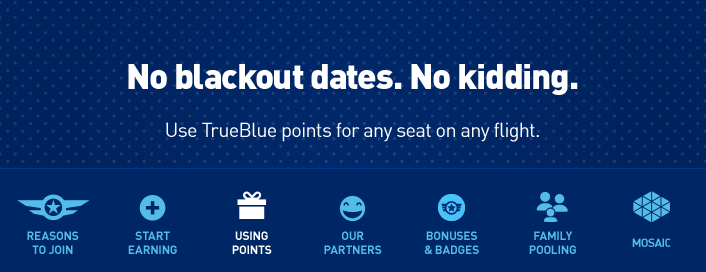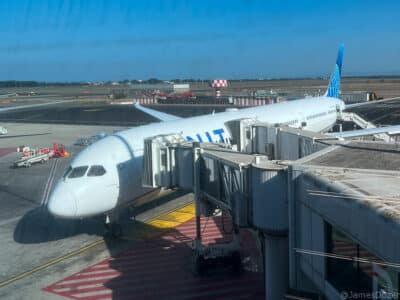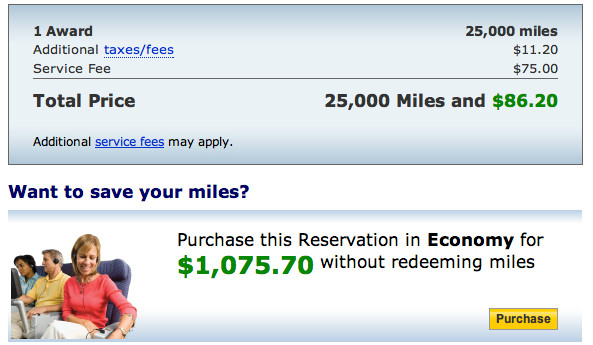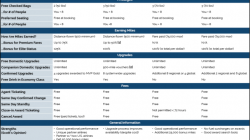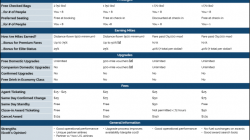Why don’t airlines like Southwest and JetBlue have award charts that spell out the cost of their frequent flier awards? Charts make it easier to determine the cost of an award redemption: for example, knowing that you’ll need 60,000 miles for a roundtrip economy ticket from the U.S. to Europe.
The reason is Southwest and JetBlue, along with a few other airlines, operate what are commonly known as “fixed-value” programs. Fixed-value programs allow travelers to use their loyalty points on any flight at any time, which is why these programs are so popular with consumers. As long as there’s a seat available for sale, frequent fliers can cash in their miles for a flight (read: no blackout dates).
But there are several tradeoffs for that infinite availability, and not all of them are obvious.
Why Do Loyalty Programs Have Blackout Dates?
Flexible award programs, or programs that operate with redemption charts, have blackout dates because airlines don’t want to give away free seats on their most popular routes. If an airline can sell a seat for cash, but that seat gets booked using points instead, that’s lost revenue. Airlines try to anticipate demand when determining award seat availability, which gives them some assurance they’re not cannibalizing their own profits.
But estimating demand months ahead of time is not always easy. Award inventory management is somewhat of an educated guessing game, and if an airline guesses incorrectly, it might end up with the wrong blackout dates and dozens of empty seats. Or even worse, it might allow travelers to book award seats that could have sold for cash.
From an accounting perspective, it’s difficult for an airline to calculate exactly how much an award ticket cuts in to its profits. Airfares are constantly fluctuating: The same seat may cost $200 one day and $300 the next. If an airline allows a seat to be booked with points instead of cash, how much money did it lose? Or did it lose nothing because the seat would have gone empty otherwise? Sometimes, it’s impossible to know for sure.
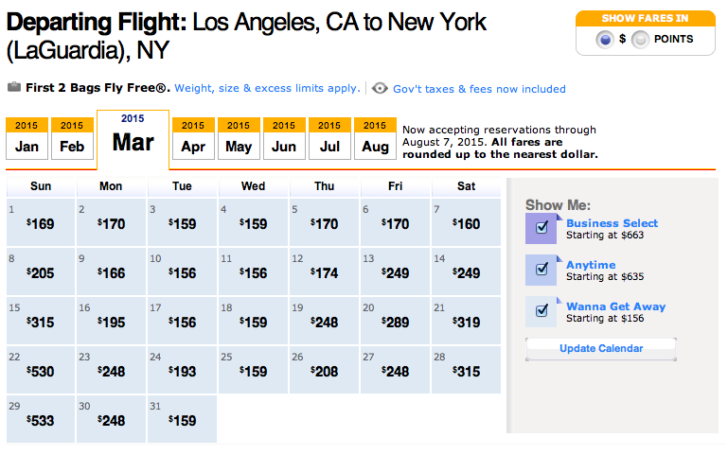
Another Solution: Fixed-value Points
A few airlines have taken a different approach to this problem by creating a fixed value for their loyalty currencies. In a system like this, the required number of points or miles is tied directly to the dollar amount of the airfare. When the cash price of the ticket goes up, the number of points necessary to obtain it also goes up.
Some airlines prefer this type of system because when they know how much each loyalty point they hand out is going to cost them, they can build that calculation into their business plans. This allows them to make all their seats available while being certain they won’t take a financial hit.
That’s exactly how JetBlue and Southwest work. Southwest’s Wanna Get Away fares currently cost 70 Rapid Rewards points per dollar, not including taxes and fees. So a $100 ticket will cost you 7,000 points, or 1.4 cents per point. JetBlue’s redemption rates fluctuate somewhat more than Southwest’s, but generally the rates are the same: 1.4 cents per point.
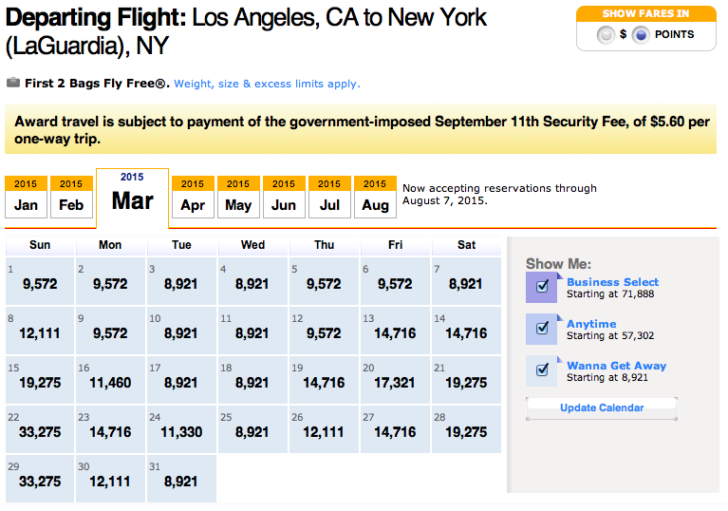
Neither airline can prevent loyalty program members from using their points to get a free seat on even their best-selling flights, but the airlines are guaranteed to know and control exactly how much that free seat is costing them.
What’s the Catch?
Just because some airlines don’t have blackout dates doesn’t mean their systems are inherently better. As with almost everything, there are tradeoffs.
The biggest disadvantage of fixed-value programs is that there’s no way to get more value for your points. If 1.4 cents is the minimum you’ll get on Southwest, it’s also the maximum. At a rate of 1.4 cents per point, redeeming for a $1,000 last-minute transcontinental flight would cost 70,000 points.
High-cost tickets such as these are where programs with blackout dates can handily beat programs without them. Yes, the seats aren’t always guaranteed to be available, but when they are, the standard cost for a transcontinental flight with airlines that use a standard chart-based redemption system is only 25,000 points. So that $1,000 airfare would cost nearly 65 percent less in points than the fixed-value award.
Premium redemptions are another area where programs with blackout dates outperform programs without them. If you’ve been saving up your points for a once-in-a-lifetime international trip in business class, you’ll have to wait an awfully long time to acquire enough fixed-value points for a ticket. A roundtrip business-class ticket from New York to Paris that is valued at $3,500 would cost 245,000 points under Southwest’s fixed-value system (if the airline flew to Paris). But under a flexible award chart, that same business-class seat to Europe is only 125,000 miles, or even less with some airlines.
Fixed-value Programs Don’t Allow for “Tricks”
If you research the many methods for booking an award ticket, you’ll find there are plenty of ways to maximize your miles. From making additional stops in exhilarating new cities to adding a free one-way flight to the end of your trip, there are lots of strategies you can use to make an award ticket extra special without any extra cost. But none of these tricks are available in a fixed-value loyalty program. Any stops or extra flights that add to the cash cost add similarly to the cost of the miles or points.
Programs without blackout dates undoubtedly appeal to many travelers, and there are certainly advantages to them. You’ll often find those flexible systems open up many other redemption possibilities, even if you have to work around limited availability. To get the best value for your loyalty, earn miles with a variety of programs.
This piece was written by Julian (the Devil’s Advocate) and though not a typical Devil’s Advocate column, it provides a more mainstream look at how programs without blackout dates still require compromises. You can read this article as it originally appeared in the Travel Features section of U.S. News & World Report.Recent Posts by the Devil’s Advocate:
- I’m Switching My Loyalty and I (Don’t) Really Mean It This Time!
- Before Joining a Loyalty Program, Pick Your Destinations First
- Shop Your Way To Free Flights and Travel Perks
Find the entire collection of Devil’s Advocate posts here.

